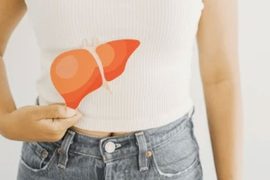Women face a multitude of health risks compared to men, stemming from biological disparities and gender inequities. Globally, adolescent girls and young women are twice as likely as their male counterparts to be at risk of HIV infection, often due to unsafe and non-consensual sexual activity. Additionally, during pregnancy, women are vulnerable to diseases such as malaria, HIV, and tuberculosis, which can endanger both the mother and her unborn child.
Recognizing the importance of addressing these issues, the International Day of Action for Women’s Health is observed annually on May 28th. Originating from a proposal during the International Women’s Health Meeting in Costa Rica in 1987 by the Latin American and Caribbean Women’s Health Network (LACWHN), this day serves to raise awareness and advocate for women’s health rights worldwide.
“In India, around 69 lakh cancer deaths among women were preventable. 20–40% of deaths occur due to anaemia, and 1 out of 10 women is estimated to develop thyroid at least once before the age of 60. This indicates how precarious life is, more so post pandemic,” states Dr Garima Sawhney.
As women age, their bodies undergo various changes that can increase their susceptibility to certain diseases. To proactively manage their health, it’s recommended for women in their 30s and 40s to undergo regular screenings. These screenings help establish a baseline of health and facilitate early detection of potential health issues. Regular health screenings are essential for early detection and prevention of various health conditions.
Medical Tests Women in Their 30s and 40s Must Undergo:
1. Pap Smear and HPV Tests:
- Purpose: Detection of abnormal cervical cell growth and HPV infection, which can lead to cervical cancer.
- Frequency: Every 3-5 years, based on age and previous results.
2. Mammogram and Breast Self-Examination:
- Purpose: Screening for breast cancer by detecting tumors and abnormalities in breast tissue.
- Frequency: Annual or biennial mammograms depending on age and risk factors. Regular breast self-examination is also encouraged.
3. Thyroid Function Test (TFT):
- Purpose: Evaluates thyroid hormone levels to detect conditions like hyperthyroidism and hypothyroidism.
- Frequency: As recommended by a healthcare professional based on symptoms and risk factors.
4. Blood Pressure and Cholesterol Tests:
- Purpose: Assess cardiovascular health and risk of heart disease and strokes.
- Frequency: Every 4-6 years for adults, more frequently for those with risk factors or older age.
5. Blood Glucose Test:
- Purpose: Screening for diabetes and pre-diabetes, especially for individuals with obesity, family history, or other risk factors.
- Frequency: Annual testing recommended, but may vary based on individual risk factors.
6. Bone Density Test (DEXA-Scan):
- Purpose: Detecting osteoporosis and bone loss, particularly for individuals with risk factors.
- Frequency: As recommended by a healthcare professional, typically for postmenopausal women and older adults.
7. Eye Test:
- Purpose: Screening for eye health conditions such as cataracts and glaucoma.
- Frequency: Every 2 years, although more frequent testing may be needed for individuals with existing eye conditions or risk factors.
8. Cancer Screening:
- Purpose: Detection of various cancers, including colon and skin cancer, based on age, family history, and other risk factors.
- Frequency: Screening intervals vary based on the type of cancer and individual risk factors.
Regular health screenings are crucial for maintaining overall health and well-being. It’s important to consult with a healthcare professional to determine the appropriate screening schedule based on individual health history, age, and risk factors. Early detection through screenings can lead to timely interventions and better health outcomes.
Disclaimer:
The information contained in this article is for educational and informational purposes only and is not intended as a health advice. We would ask you to consult a qualified professional or medical expert to gain additional knowledge before you choose to consume any product or perform any exercise.







